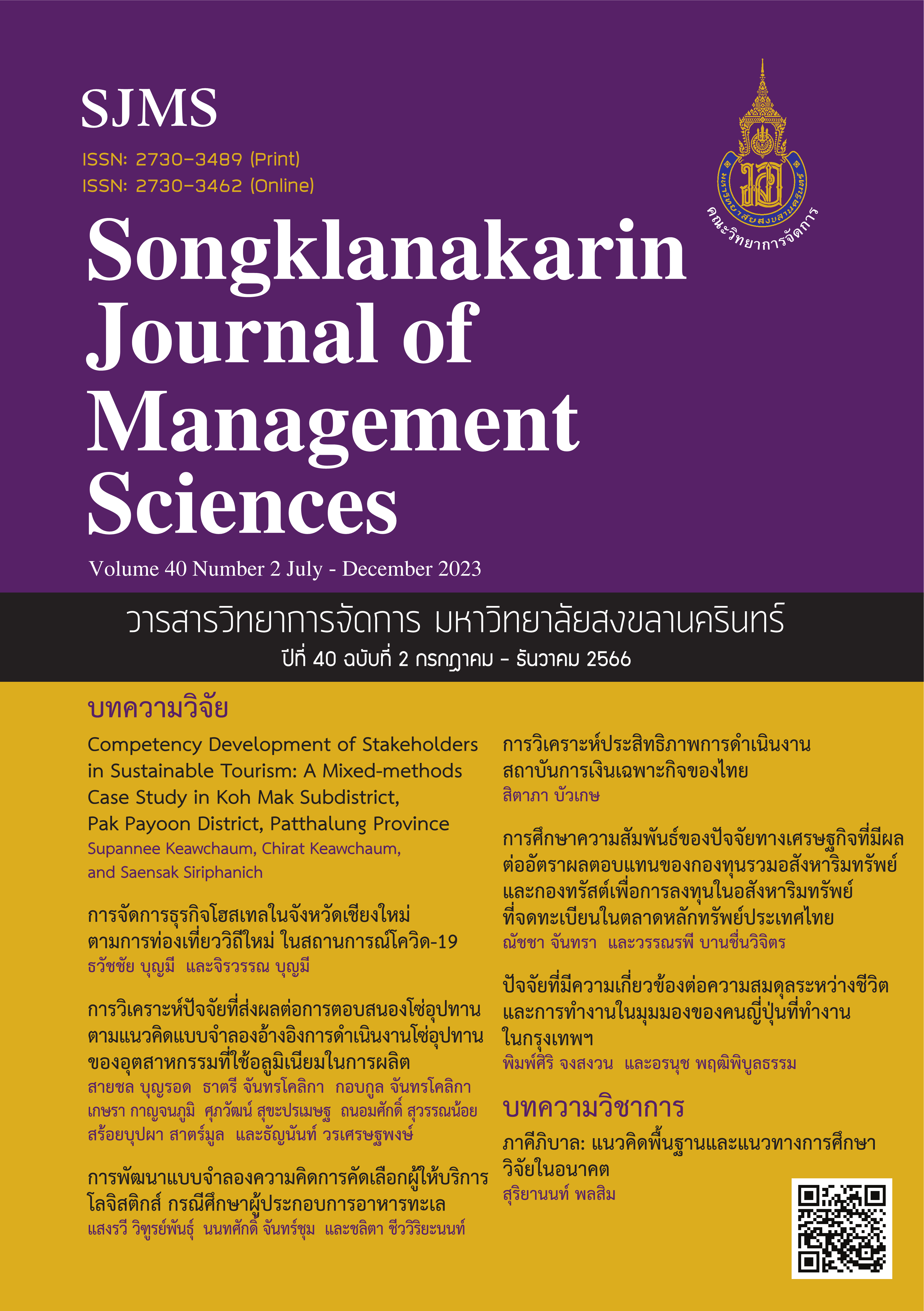Collaborative Governance: Theoretical Foundation and Future Research Agenda
Main Article Content
Abstract
This article clarifies the collaborative governance theory and offers methodological frameworks that could apply to collaborative governance studies in multiple contexts. The early part investigates the theoretical foundation and clarifications of the collaborative governance ideal, particularly the suggestion of the Thai term—Pharkhi-phibarn, which indicates the theoretical essence of collaborative governance. This paper offers three methodological approaches to collaborative governance research: cross-sectoral, inter-organizational, and regime analysis. Moreover, the author also identifies research agendas that would broaden the boundaries of collaborative governance theory, including organizational culture, membership structure, and urban governance regime analysis.
Article Details

This work is licensed under a Creative Commons Attribution-NonCommercial-NoDerivatives 4.0 International License.
All published articles are SJMS’s copyright. The editorial board allows all published articles to be copied, excerpted, or disseminated with academic citation.
References
Agranoff, R., & McGuire, M. (2003). Collaborative Public Management: New Strategies for Local Governments. Washington, DC: Georgetown University Press.
Ansell, C., & Gash, A. (2007). Collaborative Governance in Theory and Practice. Journal of Public Administration Research and Theory, 18(4), 543-571.
Bryson, J., Crosby, B., & Stone, M. (2006). The Design and Implementation of Cross-Sector Collaborations: Propositions from the Literature. Public Administration Reveiw, 2006(6), 44-55.
Chamchong, P. (2018). Local Innovation through Collaborative Governance. Maha Sarakham: COPAG Press.
Cigler, B. A. (2001). Multiorganization, Multisector, and Multi-Community Organizations: Setting the Research Agenda. In Mandell, M. P. (ed.). Getting Results through Collaboration: Networks and Network Structures for Public Policy and Management. London: Greenwood Publishing Group.
Cropper, S., Ebers, M., Ring, P., & Ring, S., P. (2010). Introducing Inter-Organizational Relations. In Cropper, S., Ebers, M., Huxham, C., & Ring, S., P. (eds.). The Oxford Handbook of Inter-Organizational Relations. Oxford: Oxford University Press.
Emerson, K., & Nabatchi, T. (2015). Collaborative Governance Regimes. Washington, DC: Georgetown University Press.
Greenwood, S., Singer, L., & Willis, W. (2021). Collaborative Governance: Principles, Process, and Practical Tools. New York: Routledge.
Huxham, C. (2003). Theorizing Collaboration Practice. Public Management Review, 5(3), 401-423.
Luangprapat, W. (2020). Collaborative Governance in Thailand: Centerless Society, Fragmented Centralism and a New Framework for Subnational Governance. Bangkok: King Prajadhipok's Institute.
O'Leary, R. (2015). From Silos to Networks: Hierachy to Heterachy. In Guy, M.E. & Rubin, M.N. Public Administration Evolving: From Foundations to the Future. New York: Routledge.
Pierre, J. (1999). Models of Urban Governance: The Institutional Dimension of Urban Politics. Urban Affairs Review, 34(3), 372-296.
Sandfort, J., & Milward, H. B. (2010). Collaoborative Service Provision in the Public Sector. In S. Cropper, M. Ebers, C. Huxham, & P. Smith Ring, The Oxford Handbook of Inter-Organizational Relations. Oxford: Oxford University Press.
Ungsuchaval, T. (2022). Governance 101. Bangkok: Sanya Dharmasakti Institute for Democracy.

